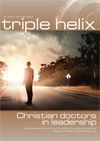At the end of March, the Nursing and Midwifery Council's (NMC) revised version of The Code: Professional standards of practice and behaviour for nurses and midwives came into effect. (1) Most of the changes are good – CMF was able to be very positive about much of the draft Code that went out to public consultation in June 2014. (2) But an interesting addition is the inclusion of a clause on conscientious objection:
'[You must] inform and explain to colleagues, your manager and the person receiving care if you have a conscientious objection to a particular procedure and arrange for a suitably qualified colleague to take over responsibility for that person's care'. A footnote adds: '“Conscientious objection” to participating in a particular procedure can only be invoked in limited circumstances.'
The recognition of freedom of conscience within the Code for the first time is a welcome development. However, the caveat in the footnote raises some concerns. Arranging for a colleague to take over seems initially uncontentious, but in practice this means tacit involvement in the procedure by making a referral – nullifying any real notion of conscientious objection.
There seems to be an underlying misunderstanding about what freedom of conscience actually is and is not. It is not just about saying 'I have decided that I believe X, and therefore I will no longer do Y'. Freedom of conscience is rather about a clear set of deeply held convictions (faith-based, worldview-based or otherwise) congruent with the values and ethics primary to medicine and nursing, which value human life, human personhood, and individual human dignity.
A doctor or nurse who takes a stand on these issues needs to make it clear that their priority is care for their patient. They are taking a stand that may put them at odds with colleagues and superiors because they hold sincere beliefs about the value of their patients' lives. They genuinely believe that the fetus in the womb or the dying patient is worthy of the same respect and care as any other young person or adult.
So, in laying down new guidelines on exercising freedom of conscience, the NMC needs to recognise these strictures. Any attempt to demand that all professionals should leave their conscience at the clinic door or get out of the profession should be strenuously resisted. Instead, we need guidance that will make reasonable accommodation for freedom of conscience, genuinely helping nurses and midwives act with the greatest professional and personal integrity, whilst neither violating their deepest beliefs nor threatening the wellbeing of the lives in their care.
































